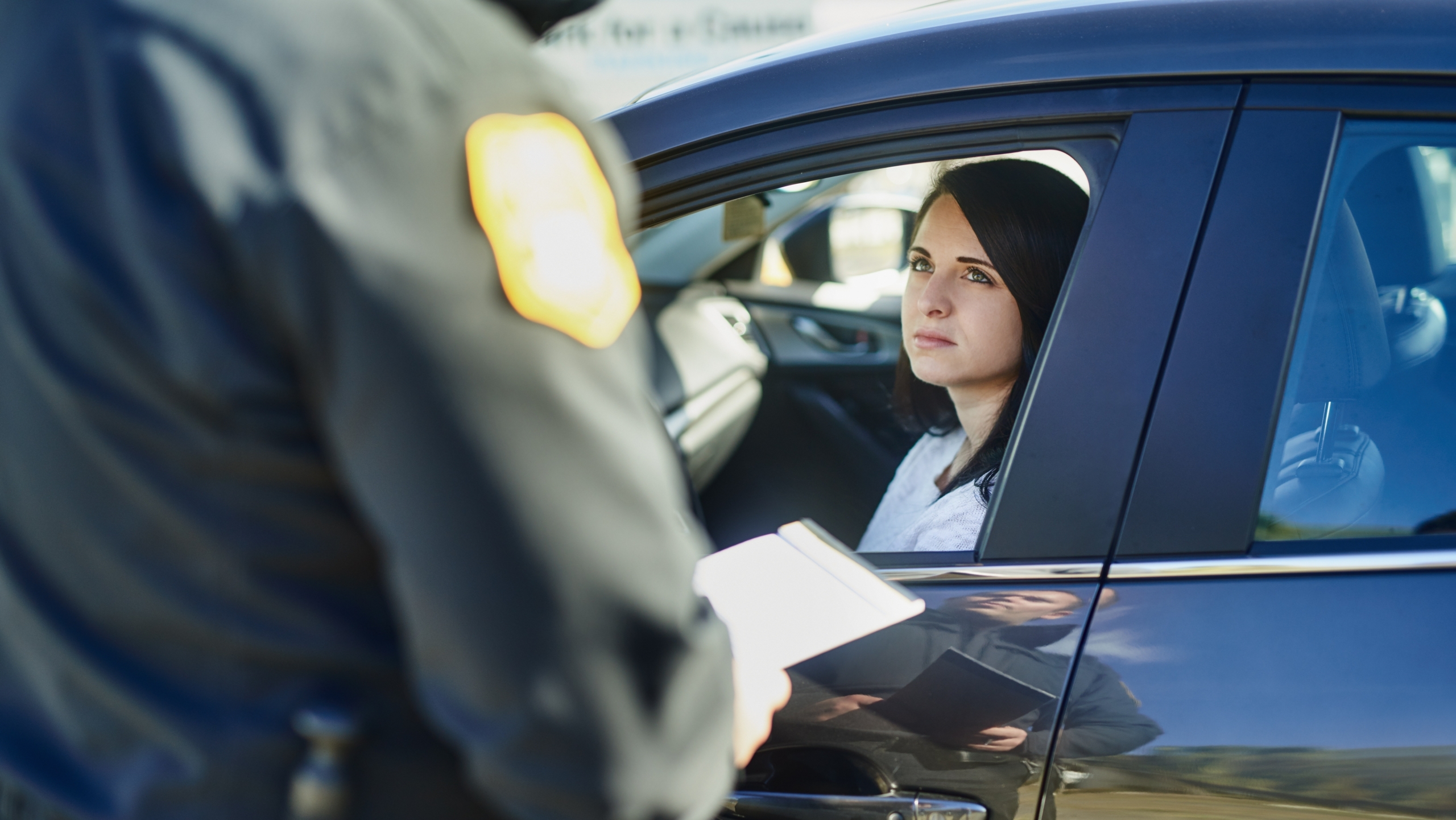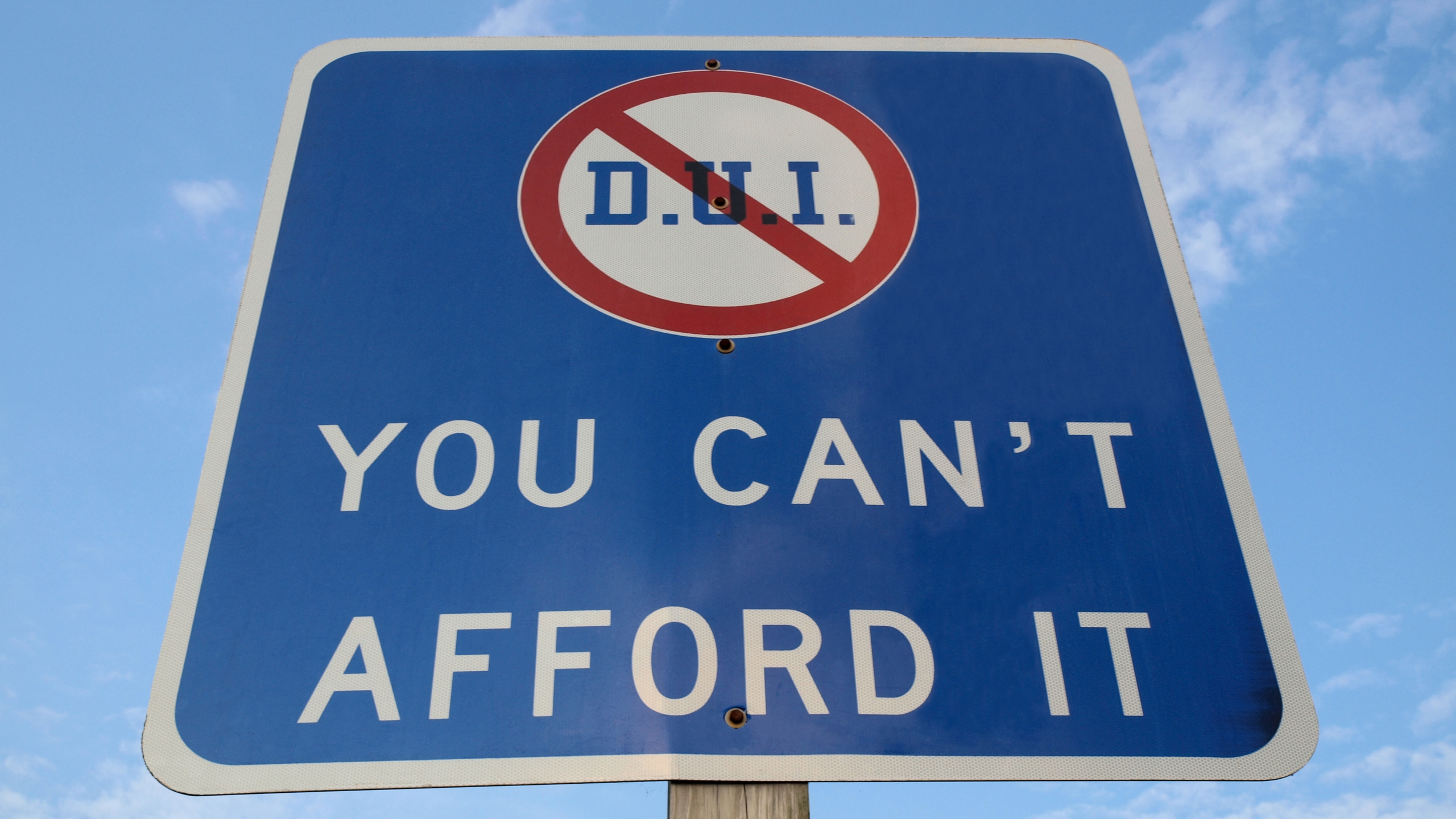
When we think of DUI, or Driving Under the Influence, most of us immediately think of alcohol or drugs. But if you look closely, the abbreviation doesn’t say DUID (Driving Under the Influence of Drugs) or DUIA (Driving Under the Influence of Alcohol). Instead, it’s actually open-ended. It’s up to you to fill in the blank: Driving Under the Influence of…?
Now, let’s take a moment to think about what can influence our driving. A heated conversation, whether in person or over the phone, can pull your focus away from the road. Medications, cold medicine, or Benadryl can certainly influence your driving and impact your reaction time. Listening to the latest “Top 100 on the Billboards” or an emotional song can definitely create a slew of emotions while driving. Having a bad day at work can impact how safely you drive.
Legally, DUI refers to serious violations involving alcohol or drugs, but everyday distractions can create situations just as dangerous. If an accident happens because you were distracted, it could have equally severe consequences. By broadening how we think about DUI, we can recognize how various factors impact driving and work to stay safer on the road.
What You Will Learn
- How distractions, emotions, and habits influence your driving.
- Broader perspectives on what DUI means beyond alcohol and drugs.
- Understanding DUI Penalties.
- Tips for staying focused and avoiding distractions behind the wheel.
- Why sharing this mindset with others can promote safer roads.
Expanding the Definition of DUI
Driving Under the Influence of… What?
Sure, DUI often refers to driving under the influence of alcohol or drugs. These substances impair judgment, slow reaction times, and can lead to tragic accidents. But there’s so much more that can influence how we drive. For instance, feeling tired after a long day or zoning out while replaying an argument in your head can be just as distracting.
Everyday Influences That Affect Driving
Distractions are everywhere. Have you ever caught yourself turning up your favorite song and losing focus for a moment? Or have you been so stressed about a work deadline that you missed a stop sign? These are everyday examples of how our emotions, habits, and surroundings can influence our ability to drive safely.
How Distractions Impact Driving Behavior
Emotions Behind the Wheel
Strong emotions—whether you’re upset, angry, or overly excited—can impact how you handle a car. When your mind is elsewhere, your reaction times slow, and small mistakes can quickly become dangerous.
Pro Tip: Take a moment before driving to check in with yourself. If you’re feeling overwhelmed, pause, take a deep breath, and refocus before hitting the road.
Everyday Habits That Distract
It’s not just emotions that can take our focus off the road. Common habits like eating, using your phone, or fiddling with the radio are distractions we don’t always recognize. Even glancing at your GPS for “just a second” can have serious consequences.
Pro Tip: Set up your GPS and playlist before you start driving. Keep your phone on silent or out of reach to minimize temptation.
The Legal Consequences of DUI in Pennsylvania

Understanding DUI Penalties
In Pennsylvania, DUI penalties depend on your BAC level and whether it’s a first or repeat offense. For example:
- First offense (BAC 0.08–0.099%): $300 fine, up to 6 months probation, mandatory alcohol safety school.
- Second offense (BAC 0.10–0.159%): $750–$5,000 fine, up to 6 months imprisonment, and a 12-month license suspension.
- Third offense (BAC 0.16% and above): $1,500–$10,000 fine, up to 5 years imprisonment, and an 18-month license suspension. (Source: Pennsylvania DUI Laws)
How DUI Affects Your Record and Insurance
A DUI conviction stays on your driving record for 10 years in Pennsylvania. Additionally, insurance premiums can increase significantly, as DUI offenders are categorized as high-risk drivers.
Staying Safe: How to Avoid DUI Situations
Tips for Staying Focused While Driving
- Avoid using your phone while driving. Use hands-free devices only when necessary.
- Plan routes and set your GPS before driving to minimize distractions.
- Pull over if you feel tired or emotionally overwhelmed.
How to Educate Your Family and Friends About DUI
Hopefully, this may inspire us to not only look at some of the mundane things we do while we are driving, and begin associating them with DUI. But, perhaps, share this new way of looking either at DUI or the things we do in the car that are distracting with your household and friends. Discuss how even small distractions can have serious consequences and encourage them to adopt safer driving habits.
Key Takeaways
- DUI doesn’t just refer to alcohol or drugs. It’s about anything that impairs your focus while driving.
- Everyday distractions like stress, fatigue, or phone use can be just as dangerous as substances.
- Making small changes, like staying calm and setting up your GPS before driving, can significantly improve safety.
- Sharing this broader perspective helps create safer roads for everyone.
Driven2Drive: Encouraging Safer Driving Habits
At Driven2Drive, we believe that being a great driver goes beyond passing the test. It’s about being mindful of how distractions and emotions influence your driving. By promoting a safer mindset, we hope to help drivers of all ages become more responsible on the road. Stay safe and till next time.
FAQs
What does DUI mean beyond alcohol and drugs in Pennsylvania?
In Pennsylvania, DUI includes driving under the influence of any substance that impairs driving ability, such as drugs (legal or illegal) and alcohol. Careless driving caused by distractions, though not classified as DUI, can result in citations under 75 Pa.C.S. § 3714.
What are the penalties for DUI in Pennsylvania?
Penalties vary by BAC and prior offenses. For example:
High BAC (0.16%+): Fines over $1,000, one-year license suspension, and potential jail time.
(Source: Pennsylvania Department of Transportation)
First Offense (0.08-0.099% BAC): $300 fine, six months probation, and mandatory safety classes.
How do distractions like stress or emotions affect driving safety?
Stress or strong emotions can reduce your ability to focus, slow your reaction times, and lead to impulsive decisions. These factors increase the risk of accidents and can impair judgment just as much as substances.
How can I reduce distractions while driving?
- Turn off notifications on your phone.
- Plan your route in advance.
- Avoid eating or fiddling with objects while driving.
- Take a moment to relax if you’re feeling stressed.
Why is it important to broaden our understanding of DUI?
Broadening the definition of DUI helps drivers recognize and address risks that aren’t typically associated with impaired driving, like distractions or medications. This understanding promotes safer driving habits and reduces preventable accidents.

Ronit Tehrani is the Founder and Co-Owner of Driven2Drive, a premier driving and license testing center in Philadelphia. Since 2013, she has been dedicated to providing safe driving education and skills for lifelong success. Under her leadership, Driven2Drive became Pennsylvania’s first privately owned PennDOT-certified testing center, now with six locations.
